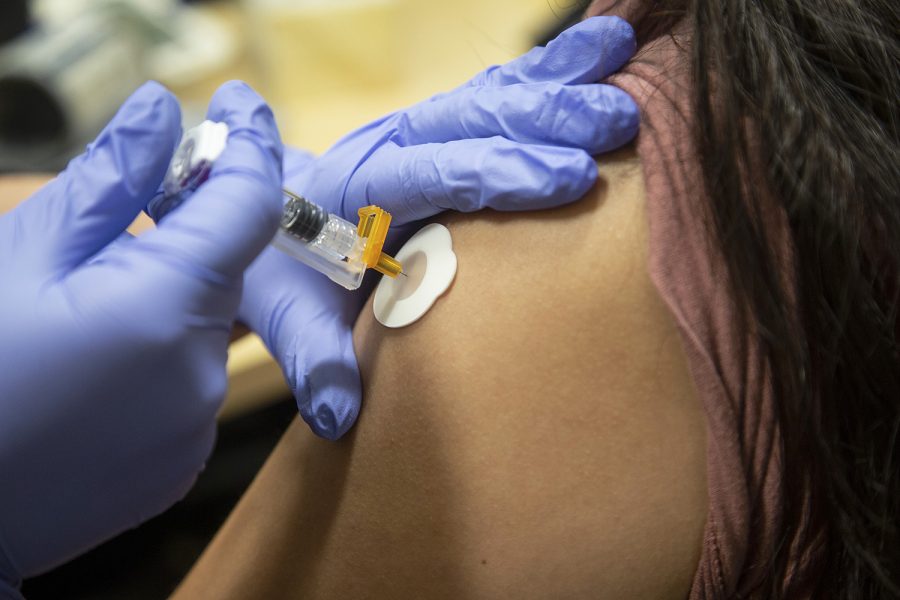Marginalized populations in Johnson County lack access to free COVID-19 vaccinations, according to a recent countywide survey.
The survey found that immigrants living in Johnson County experience several barriers to vaccination, including a lack of health insurance, a lack of overall vaccination information, and language and communication barriers.
Karrey Shannon, a community health nurse at Johnson County Public Health, said limited access to health care is largely due to immigrants working in lower-wage jobs that often do not provide health care benefits for employees.
The survey, called the Whole Worker Health Equity Survey, Report, and Needs Assessment released on April 17, revealed the county was made aware of the lasting economic and social impacts COVID-19 had on the immigrant population. The survey was conducted by Johnson County Public Health and the organization Escucha Mi Voz in fall 2023.
The health equity survey shows many economic factors that affect vaccine access for immigrants, such as lack of affordable housing. According to the survey, 53 percent of surveyed immigrants pay more than $800 in monthly housing.
Additionally, 53 percent of respondents said they did not have health insurance. Of these, 83 percent of Hispanic and Latino respondents said they did not have health insurance, compared to 11 percent of Black African respondents.
Mazahir Salih, a volunteer at the Immigrant Welcome Network and Iowa City’s Mayor Pro Tem, said vaccine misinformation, a lack of free vaccines, and a lack of health care information provided in multiple languages largely affect the immigrant population.
Salih said most vaccine misinformation is found on social media and often targets immigrants. According to the National Library of Medicine, immigrants are more likely to seek vaccine information on social media platforms where they have access to information in their native language.
Financial and communication obstacles cause immigrants to have more economic disadvantages and are often related to unaffordable housing and low education.
Shannon said she hopes the survey results will bring awareness of vaccine hesitancy to local governments and lead to supportive actions toward the immigrant population. She said the Johnson County Public Health Department has worked to meet the health needs of immigrants by having free vaccine pop-up booths in local areas.
Salih said the county should be doing a lot more to provide health care education and access among the immigrant and refugee community. She said many immigrants arrive with little to no knowledge of vaccines and often do not believe in the importance of them.
“They come from their country with certain beliefs, and there is no education here for them in their language,” Salih said. “And there is no outreach that has been done by the health department or anyone else to go and talk to them.”
Salih said community outreach is influential among immigrants and finding messengers within immigrant communities can help lessen the language barrier between immigrants and health care workers.
RELATED: JoCo Public Health selected for grant program to address vaccine inequities
Johnson County Board of Supervisors Chair Rod Sullivan said the board acknowledges the difficulty of having health care access when there are little to no resources provided for immigrants.
Sullivan said the board will continue to promote and support vaccination programs in the county and continue working with public health to provide more access to minorities.
Shannon said it is important to keep updated on all vaccinations, and her goal is to save lives through health care.
“Vaccines, at their base, are set essential preventive care,” Shannon said. “And the single most effective way that we have to prolonging people’s lives or keeping disease rates low is being able to offer those to people who may not otherwise be able to seek out preventive care.”



